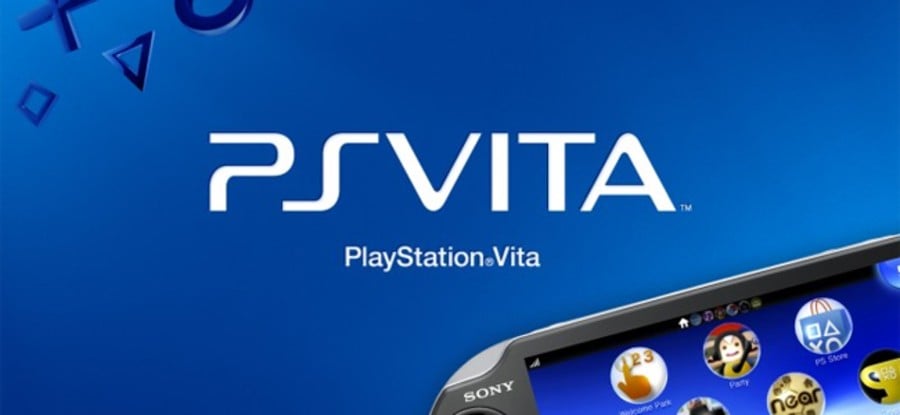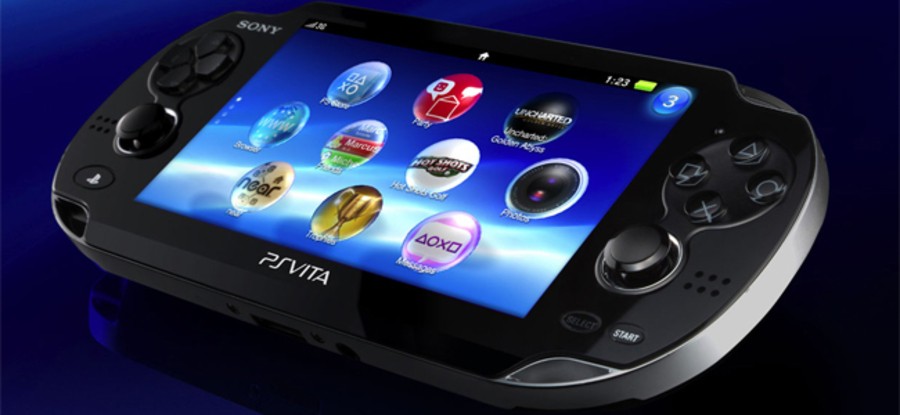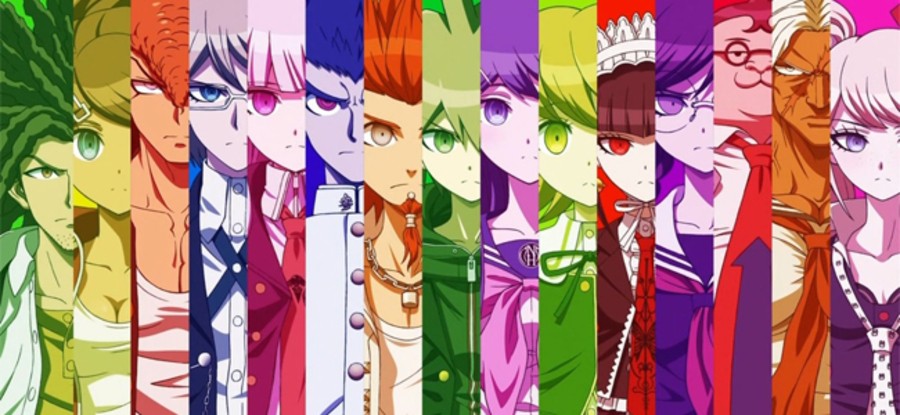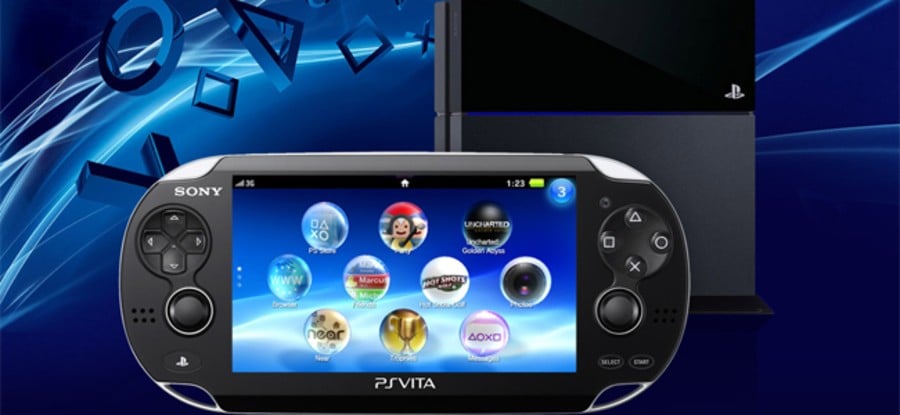
Seasoned industry analyst Michael Pachter couldn’t possibly paint a bleaker picture of the future of Sony’s handheld gaming business. Speaking with Game Informer in a recent interview, the popular sales predictor noted that the platform holder “misjudged the market” with the PlayStation Vita, and hinted that it may not even have another crack at conquering the shrinking market as a result. But is the situation really as bad as the suit’s making out, or is there still hope for the supposedly struggling system?
“The sales are horrible,” the executive stressed, attaching an estimated 4.2 million units tally to the portable in 2013. “It’s a pretty small number, and I don't think that Sony’s going to build a business selling four million a year. It has relatively few games because they are complicated to make and the market is so small. [The Japanese giant] will spend the money with their internal studios, but you're just going to see [the device] die a slow, painful death.”
It’s a pretty damning statement that’s worsened by the fact that the Wedbush Securities employee doesn’t see a way in which the platform could have performed better. “Sony launched it into this storm of mobile destroying the casual end of dedicated handhelds,” he continued. “And Nintendo's not giving up much share on the hardcore side, because they have three games to every one Sony game – and they are good games.”

Are things really that miserable, though? The manner in which the organisation’s taken to hiding the true install base of the format suggests that Pachter’s probably on the money when it comes to the sales. Despite a reasonable start, we haven’t been given an update on the device’s install base in over a year. Indeed, way back in January 2013, a Guardian report pegged the handheld’s total tally at around four million units, meaning that it’s probably yet to even pass the coveted ten million units barrier.
The silence is deafening. The same company launched the PlayStation 4 around two months ago, and has already provided several updates on the platform’s success. The difference is that one piece of hardware is breaking records, while the other is struggling to make a mark. It’s something that the freshly reformed format holder is even willing to acknowledge, with Worldwide Studios president Shuhei Yoshida stating as much as early as November 2012.
In an interview with French website Lemonade, the candid executive explained that sales are “below expectations”, and he also pointed to the growing dominance of smartphones and tablets as the reason behind the tardy uptake. “Consumers now have multimedia devices,” he told the publication. “These devices include the ability to play, and it’s difficult for us to justify the purchase of an additional machine.”

The uber-popular Sony employee also suggested that a shift in publisher resources to platforms such as the App Store have impacted adoption of the handheld more than it expected. “With the rise of mobile gaming, studios have started to transition, allocating more resources to this type of production,” he continued. “Even if the creators want to develop games on the Vita, they unfortunately have fewer resources to do so.”
There’s undoubtedly truth to Pachter’s comments about the commercial performance of the Vita, then, but that doesn’t mean that it’s dying out. While its first few months on the market were heavily impacted by a poor software lineup, that situation has changed over the past year or so. A quick glance at the release calendar highlights upcoming software such as Toukiden, Conception II: Children of the Seven Stars, and Danganronpa: Trigger Happy Havoc.
It’s niche software, there’s no doubt about that – but it seems to be coming thick and fast these days. And that snowballing schedule has contributed to renewed enthusiasm regarding the format among owners. Crucially, it’s safe to assume that the games are actually selling, too, otherwise we wouldn’t be seeing these titles being released at all. It’s clear that while big publishers such as EA are pushing the platform aside, smaller outfits are relishing the opportunity to feed a hungry fanbase.

And it seems to be something that the platform holder is aware of. “The thing that has me encouraged about the Vita is that the people that have bought the console really enjoy it – they’re very happy with it, and they’re buying a lot of games,” SCEA president Jack Tretton told IGN last summer. “I think that I said at E3 that owners buy around ten games on average, so we’ve got a dedicated fanbase, it’s just not big enough right now.”
In fact, that figure is extraordinary. Way back in November 2008, a Gamasutra report pegged the PlayStation 3’s attach rate at about 5.3 games roughly two years after its launch, meaning that handheld players are hungry for software. The numbers don’t match up exactly – the manufacturer’s former flagship format had a larger install base at the time, and console games generally retail for more than portable ones – but it gives an indication of how popular the pocketable platform is among those that own it.
With that kind of enthusiasm surrounding the handheld, it’s hard to describe it as a device that’s dying. However, the real problem that the platform holder’s facing is communicating the appeal to the mainstream market. “It's not the biggest seller that we've ever had, but it is still a very much loved and much respected machine,” SCEUK managing director Fergal Gara affirmed last year. “It's now far more keenly priced, and it becomes a very strong companion for the PS4.”

Indeed, the firm appears to be betting the bank on Remote Play acting as a Trojan horse to get the platform into as many homes as possible – and there are early indications that it could be working. MCV noted shortly after the launch of the Japanese giant’s next generation console that sales of the portable had increased by 68 per cent in the UK, a figure partially propelled by a bunch of last-minute hardware bundles that the manufacturer prepared.
Even more optimistically, hardware marketing manager John Koller observed a similar trend in North America, where the portable wasn’t even packaged with the platform holder’s new home console. “Vita has done very, very well since the PS4 launch,” he said in a recent interview with Got Game. “People are starting to use it for things like Remote Play, which allows you to play PS4 games on your Vita via Wi-Fi.”
But will piggy-backing off the success of its home console prove to be enough to turn the portable’s prospects around? There’s an argument that in order to truly understand the value of the handheld, you need to own it, so we can certainly see the rabid fanbase growing as a result of new adopters buying into the ecosystem. But there’s still more that the manufacturer can do to encourage that additional purchase.

Speculation suggests that the slimmer hardware revision responsible for catapulting the system’s sales in Japan may be making its way overseas, which should see the platform become even more affordable. While recent retailer promotions mean that the device hasn’t exactly been breaking the bank here in the UK, the console still sells for just a whisker shy of $199.99 in North America, which is still a significant investment.
Stripping out the OLED screen and condensing the internals will bring costs down, and assuming that Sony passes those savings onto the consumer, we can see it unlocking a somewhat larger audience in Western regions. The other issue is, of course, the memory sticks, which need to be heavily reduced. A token gesture at GamesCom saw the manufacturer cut the prices in half, but they still need to be much cheaper.
Even with those changes in place, though, it’s hard to imagine the Vita ever commanding a leading role in the gaming industry’s equivalent to Broadway. However, that doesn’t mean that the portable doesn’t have a place in the volatile market. It may only have a small install base, but that following is vibrant and willing to splash out on lots of software. Perhaps more importantly, the content is now starting to come to the console with some regularity. The pulse may be muted, but it doesn't sound like a dying device to us.
What are your thoughts on the Vita now that it’s approaching its second birthday in the West? Do you agree with Pachter that the platform’s dying out, or do you think that its prospects look brighter than ever? Are you happy with the game library, or do you still feel that it’s lacking in crucial areas? Write your report in the comments section below.
Do you think that the Vita’s dying a slow, painful death? (76 votes)
- Yes, the sales are absolutely abysmal and the software lineup’s very poor
- Hmm, I’m honestly not sure
- No, the install base is small but the library’s great and the fanbase is strong
Please login to vote in this poll.





Comments 49
No.
As a new owner of a Vita, I can say it's not a console you can explain why you should buy it, you have to experience it first hand. As people are starting to pick up a Vita for some exclusive titles, I think we will see word of mouth spread about it. I don't think the fanbase will shrink as small as the PSP with only dedicated JRPG fans left at it's funeral but won't be as big as Sony want it to be.
While I like my Vita and it's 20 or so good games, I can definitely see where Pachter is coming from.
Gamers need to stop hating on him. He's doing his job, which is advising investors as to whether it is wise to invest in something. He'd be out of a job in three seconds flat if he advised investors to invest in Nintendo in the state they're in just because there are some vocal fans that hate him because he 'doesn't like Nintendo' (which is false, he probably doesn't have a strong opinion either way on Nintendo's games/systems, just its stocks)
The fact of the matter is that it is not currently wise to invest in Nintendo, other than buying their systems. In terms of stocks, Pachter is indeed in the right. You aren't going to get much return.
I use Nintendo as the example because they're in a much more immediately noticeable problem area than Sony.
Right now unless they flip the table on Nintendo's face and show they have something to work this around yes the Vita is going to die slowly even with that attach rate of 10 games per console.
RIght now the Vita only the only thing they have on the table are Freedom Wars and J Stars Victory and that's all we know for 2014 unless Gravity Rush 2 comes out this year, the only series I can think off that might save the Vita is Monster Hunter but they are really hugging Nintendo after that shady timed exclusive deal they made with them.
Without all that being said, these might give Sony a reason why they shouldn't sell overpriced Memory Cards instead of using SD cards on their handhelds but maybe I'm talking a bit ahead of myself, lets just wait and see their Thursday conference and see how well all this turns out.
PS: Don't get me wrong I don't hate the Vita its just already to late for a comeback at least on Japan with that being said I still hope they bring PS Vita TV to the West,
Thursday it'll be Sony's last chance of redemption
No offence, but I don't listen to a guy who obviously knows nothing about gaming and gamers in general I feel the PS Vita had a slow start, yes, but it's starting to get the games and a lot of people are starting to buy the system.
Honestly, we can't compare Vita to 3DS, Nintendo has been doing portable way longer and that's basicly their main market, but it would be smart to compare Sony's secondary system (Vita) to Nintendo's secondary console (Wii U) and then I would say, Vita is doing pretty d@mn good! ^-^
Stop listening to Pachter. Games and gamers make a system a success, not some moron who gets paid alot to make predictions on gaming, that isn't even a gamer himself
What the hell?? The. VITA IS NOT GOING TO DIE. God, this is getting really tiring to hear
I plan on getting one this weekend. It was in critical condition after e3 last year and I traded mine in. Now with the promise of remote play and Sony ACTUALLY following through on their promise this time. I plan to re-purchase a Vita (hopefully the Vita 2000) if announced this Thursday along side my purchase of a PS4. If all goes well this will be a good weekend for me.
@Shellybird27 completely agree, can't we all just enjoy the games and stop predicting doom on everything now-a-days. "OMG, the system wasn't a run away success, it's soooo doomed!" crap has got to stop, for both Vita and Wii U
I think this year may very well be the year of the Vita. Not to say 2013 was a bad year for it, quite the opposite, but there's games like Gravity Rush 2, Freedom Wars, Soul Sacrifice Delta and Soul Sacrifice 2 already announced to be coming out this year. Along with the possibility of Vita Slim or Vita TV coming to the west, and the potential for massive amounts of games announced for it at E3, GamesCom, etc., system sellers like Borderlands 2, AND PlayStation Now, provided it works well, I see good things in the Vita's future.
I don't see how a gaming system can have a slow death when they start out w/ a life expectancy of 5 years. It's either going to die NOW or it's going to live. They ALL die slowly. Even the DS and PS3. Planned obsolescence.
The Wii died painfully slowly it's last 3 years but still sold over 100million.
The Dreamcast died quickly. It wasn't slow and painful,it was fast and painful.
The Vita may die fast - see Sony's junk bond status downgrade - or it will live painfully w/ no games - but it won't die slowly and painfully.
@Shellybird27 I agree with you, I just wanted to write this because I think the Vita is in a really unusual situation. It's universally adored by its fans, is starting to accrue software at a steady rate, and that content is actually selling quite well - and yet, I can still appreciate Pachter's point because it's not shifting many units.
As I said last week, GameStop is selling makeshift PS4 Remote Play bundles and it's currently the top seller. Meaning that the Vita is starting to gain some steam now, all its missing is more first party support and it'll be fine.
And the Vita has supposedly been dying for a year or so, which just tells me that the Vita is immortal and won't be going anywhere.
@Bliquid Good post, I hadn't really considered the Dreamcast analogy, but it's spot on.
@BornOfEvil Interesting. Do you know how much those cost?
I happen to like Patcher and tend to agree with most of the things he says concerning the gaming industry. A lot of gamers hate him because he states the obvious, and a lot of times it's the cold hard truth that we as fans refuse to believe and just dont want to hear. But he's only doing his job and he doesnt get paid for wishful thinking. Personally I think the Vita is going to be alright but no where near as successful as Sony wants and needs it to be. As for Nintendo only God knows where they go from here.
I love my Vita, and I love it for the reasons other people say it's "struggling". I like my portable indie machine.
@get2sammyb Do you think Sony should do a Minecraft bundle with Vita? Cos if they market it as "The definitive Minecraft experience on the go" then that could shift a fair few units, cos it seems like whatever Minecraft is on... it sells.
Well, here's my take on the Vita situation:
Just because a gaming device doesn't sell 80 million units, doesn't mean it's dead, and doesn't mean it can't be a great platform and contribute to the greater gaming library with some gems of its' own. I know Sony is accustomed to massive success with its' home consoles, but I think Sony will have to learn with their handhelds (as Nintendo will have to accept with their home consoles) that they're probably going to have to make due with a much smaller install base.
Now, that doesn't mean the platform is dead. Look at the N64 which sold 32 million units, or the Gamecube with 20 million units. Those platforms were sustainable AND profitable. Likewise, Sony can keep a leg in the handheld market with Vita sales in that range. It's not the end of the world. Sure, they might suffer a blow to their pride, but no REAL harm will come of it. Same for Wii U- the console's current trajectory is to match Gamecube sales, although I doubt the next 5 years will be as bad as 2013, so in all actuality it'll probably land somewhere in the N64 range. And that's ok. They may have lost bragging rights, but the platforms can still thrive at that level of success.
Sometimes, you do everything right, but the market just isn't as big as you want it to be. I believe Sony HAS hurt the Vita with exceptionally expensive memory cards and a lack of critically acclaimed titles, but that's small potatoes. They're going to have to accept being the niche handheld platform any way you slice it, just like Nintendo is going to have to accept being the niche home console platform any way you slice it.
Doesn't mean these consoles can't be outstanding, and it doesn't mean they can't be a profitable source of income. They just have to play their cards right to accommodate a lower install base. Keep development costs reasonable, and maintain high quality to maximize sales of each 1st party title. I'm not too worried about it- they'll figure it out.
I Love my vita and my 100 games for it but whenever u try to explain to others... I really can't.
Soul sacrifice is so damnt hard for beginners, gravity rush is good but beginners feel headache. Not to mention it's hard to show rpg to others too.
Not like the other portable, I just need to say "pokemon", "monster Hunter " and so they understand what to expect.
My point is simple, vita HAS very much games but I cant find a great title for recommendations to others
As much as I like the Vita, and I do think it's awesome and one of the best electronic purchases I've ever made, it wouldn't be the worst thing for the PlayStation brand if Sony phased out its handheld business. PS was at its best when Sony had a singular focus on the home console market.
@JaxonH "Just because a gaming device doesn't sell 80 million units, doesn't mean it's dead, and doesn't mean it can't be a great platform and contribute to the greater gaming library with some gems of its' own"
But it does mean that investors shouldn't waste their money investing in it. Therefore, Pachter is doing his job and turning investors away. And rightly so.
Pachter doesn't care about how good the games are, or how much untapped potential the console has. He doesn't have to. He cares about the numbers, and the sales forecasts.
People need to stop taking it as an emotional/personal dig at Sony/Nintendo. It's a business analysis, and I hope Pachter is making a good living off of it because he's typically not far off the mark.
(I wasn't necessarily responding to you, Jaxon, just using something you said as a contrast)
Funny how sony and nintendo have the same problem. The vita is just like the wii u, and just like nintendo; sony is too big to fail.
@RaymanFan2
No, I completely agree. The investment viewpoint is legit. Can't argue with that. As far as investment goes though, you invest in the company as a whole, not in a single product.
But as a gamer, I disregard things like that because I'm not invested. I play the games. So while a company may or may not make a good investment, the platforms can still be supported and can still bear good fruit. Long as a console/handheld has new games coming, it's alive and well as far as I'm concerned, profits be damned.
I've NEVER had a problem with Patcher and his sales/investment analysis. What rubs me wrong is when he says things like "I don't get it" about the Wii U and Vita/PS4 connectivity, as if the dual screen concept is somehow above human comprehension. You can debate whether it's gonna help sell the product all day long, and that's fine. But when he challenges the integrity of the console itself, that's when I get put off.
Like him or not Patcher must be doing something right given his position. That still doesn't mean he's always right. I think Vita still has a chance. Maybe slim, but still a chance. They'd have to make some big moves though. Here’s my opinion:
That's how I see it anyway.
The lineup is far from strong, FAR FROM STRONG! I love my vita but devs are not giving it near as much attention as it deserves. To call the vita lineup strong is just stuuuupid consumerism. If Microsoft had a lineup like this on one of their platforms after well over a year it would be mocked by most of you and snickered at in a loud fanboy fashion.
When the Vita was announced in 2011, I proclaimed it would be dead within 3 months and the 3DS was the reincarnation of Jesus, that had no faults. But, early last year I snapped out of my cult-like Nintendo following, all thanks to Gravity Rush and the handheld that could, the Vita. I got my Vita as a trade for my old PC and quickly fell in love with it, so much it's replaced my 3DS for handheld of choice. Even if the Vita dies, it's charger will always be welcomed in my wall.
Hello Push Squarers!!!!!!!!!!!!! Neo-GeoFan from Nintendolife coming in for a quick visit!!!!!!!!!!!!! I firstly want to say I mostly only play on handhelds. As such I have been keenly watching the Vita over the last few years. I have ADORED the 3DS (one of the best handhelds ever BTW). But a Gamestop after Christmas sale appeared and made a used Vita as cheap as a 2DS so I figured, "what the hell???" And boy I don't regret it.
While the 3DS is still handheld choice (30 some odd games to 3 ATM so the 3DS is constantly in my pocket) the Vita has not just surprised me, its shocked me. Gravity Rush is amazing, Wipeout 2048 is fantastic and MLB 12 the Show is well just plain fun!!!!!! It is great handheld, but it is dying a slow and awful death it doesn't deserve. I wish Sony would step up the game on the Vita and help it is survive!!!!!!!!!!!!!!! Still for now as a late coming there seems to be plenty I need to catch up on and I can't wait to see what else this little machine has up its sleeve!!!!!!!!!!!!!!!!!!!!!
@BlueProxy "Find out what would make people buy a vita, and do it. Just ask the people that don’t have one why not."
This ^. This is what needs to be done. Still, the answer will more than likely be the prices... it's always the prices. The price of the Vita itself, the games,(which I think is fine) and the memory cards.
@RaymanFan2
Your right, and I absolutely agree, people need to stop taking Pachter's analyses so personally.
He looks at things from a business perspective and makes these calls based on where things are currently headed, but what he says in these interviews isn't the same as what he tells clients either.
People take his analyses seriously because they are a reflection of whats happening, it doesn't matter who they're intended for. Pachter himself even points out what could cause things to change, so why shouldn't anyone else?
Also, in case you haven't exactly noticed, playing devils advocate for Pachter isn't exactly safe.
Absolutely love my Vita as a system, but starting to contemplate getting rid of it. I bought it for, and want more, console style AAA games. Uncharted Golden Abyss was great, as was Killzone Mercenary, but I've got no interest in any of the quirky Japanese stuff or RPGs.
Other than that, all we seem to be getting is retro themed indie stuff, and with all due respect to those developers, I didn't buy a state of the art handheld to play games that would run on a GBA.
I'll wait a little longer to see if anything interesting gets announced, or if developers make reasonable use of it as a second screen for PS4 games, but if things don't pick up in the next 6-12 months, I think it'll be gone.
FFS will you give it a rest already? If it's not dying, you (so call journalists) sure do a damn good job at trying to kill it, asking the same fracking question twice a month. You want to write somthing about? Write about the lacking software, features and multimedia cpabiliities of the PS4 as it enters its 3rd month on the market. Those are real issues. Or... You could write an article saying why 2014 will be a great year for Vita?
What stopped me buying a Vita for so long was the horrendous memory card prices. I simply refused to pay 4x the amount just to save my game.
I finally caved when I saw a 32Gb for £39 but even that is over twice the price for the capacity of "normal" SD cards.
Just can't understand Sony's logic with that. Surely by lowering these prices and getting more devices into peoples hands is more profitable for them than making a few quid on the actual memory cards?
Love the machine though. I really hope it has a solid future from here as I'm only getting started!
@get2sammyb $634.97 for refurbished Vita, PS4, DS4, KZ:SF and a $20 PSN card
http://m.gamestop.com/Catalog/Product/113553
I got my Vita like 2 months after the NA launch and have loved it to death. I play it a lot--KZ:M is really solid, VK3 is actually a pretty great RPG if you can stomach the shopkeep mechanic, LBP and Tearaway are cute and fun, MGS2/3 port rules, P4G is amazing, SS plays uniquely and was a free Plus game, etc etc etc... There's literally something for everybody to play on Vita. And oh yeah not to mention smoothing out every PSP game that needed another stick (a main buying point for me). Idk what else you could want (other than R/L 2/3!!!!)
He is right about that device is a little bit high-end for PS3 era of gaming. But for PS4 era of gaming, it's bloody perfect. You can play PS4 games on Vita, and will be able to play PS3 and PS2 games. And with PS4 games, developers will not think that games for Vita is too complicated to make anymore. All his arguments have some points in PS3+PSV era, but will see what will come up in PS4+PSV era. So maybe Sony is right not forcing PSV in the west, at the moment. And it can look like Sony abandoned PSV, from some point of view.
I'm just wondering, when analysts make statements like this, are they ever correct??
Have to admit when I saw this story a few days ago I knew exactly what the majority of reactions would be on here and I was right. The same people who said Patcher was bang on the money when the Wii U struggling story was posted on here last week are now saying he knows nothing. Hypocrisy at it's finest.
The non-Sony fanboy's are the ones talking the most sense. Yes, the Vita is doomed and no matter what people on here say it is, sadly. But sod it and enjoy it while it's here.
I remember buying a White Vita a little over a year ago when the Assassin's Creed Liberation Bundle was on sale, and after witnessing the handheld's situation from then until now, I really think Sony needs to do what Nintendo needs to do for the Wii U: better marketing and more games. Like what was implied in the article, Sony needs to get across that the Vita is something that's more substantial than what iOS or Android games can offer. Nintendo's already gotten that across with the 3DS with their advertising and excellent game library...now Sony simply needs to do that by enticing developers to get on-board with the Vita.
Great job getting all the information together for this article, Sammy!
When I read that I was like, 'Right that guy needed to lay an article... Next'
As long as the Vita remains some quirky independent gaming machine with horrifically overpriced memory cards, it won't sell. That simple. And since it won't sell, AAA game devs won't make games for it. For people who want to play quirky japanese games or an endless string of overrated independent crap & have a high gaming budget, the Vita is for you. Unfortunately for Sony, that isn't enough people & the Vita will die a slow, painful death.
SCEA is the BIG problem...IF they want their first party teams to concentrate on PS4,they could at least port some of those awesome games from japan over...phantasy star online 2,tales games,sumurai and dragons,god eater 2,lord of arcana 2 etc etc...make some effort in getting those games and a new monster hunter over to the west or port them themselves like borderlands 2 and everything would be fine...
Yes contrary to what people chose to believe PS Vita and Wii U are dying a slow and painful death, the only difference is that Nintendo is actually committing first/second party exclusives to Wii U and Sony haven't announced a thing for PS Vita (I thought this would change during the Slim Vita event i was wrong).
This does not include SCEJ games until they are announced for world-wide, which is inevitable but still. Even then including those games it still wouldn't be on par with what Ninty has for the future numberwise.
Sony strategy: I started catching whiff of this when there was and still is a fixation on remote play and accessory and then in 2014 still no games announced. This has killed off any potential support and there was potential support.
SCEA: They have all fled PS Vita besides SCE San Diego (Yearly MLB games) and they haven't even touched it. They haven't marketed it according to Americans on the web, they haven't committed any AAA games (Like SCEE/J). They haven't done jack ****.
AAA Exclusives: Where are they?
I do think that the Vita is in a worst place than the Wii U. Both are great machines once you play them, but they are both struggling and is mainly Sony and Nintendo's fault for that.
Wii U has some games announced, including AAA titles such as Bayonetta 2 and all the first-party like Smash Bros Brawl.
Vita has nothing like this. The most interesting games on the horizon are FFX/X-2 HD. Soul Sacrifice Delta probably won't change the mind of who didn't like the first one and the indies don't sell machines with overpriced memory cards.
The only other game, that I hope will be coming out this year is Gravity Rush 2. Other than that, there's nothing to look forward.
The lack of backwards compatibility also hurt the Vita a lot.
I'm mostly a handheld gamer and I love my Vita but it's played very little, specially considering the huge amount of games that already are on the 3DS and that are coming soon this year.
Vita's getting lots of good-looking games this year, I don't see the problem~
64, 32 and a 16GB card full. Have a few hundred megs free on each and perhaps 20 physical games(many psp and psx classics as well)...yepp I'm part of the rabid fanbase.
But yes. A nisch success atm and as long as it doesn't dwindle I'm fine with it. The stock perhaps isn't.
No but PS3 maybe!!
@JaxonH very well said. i think you nailed it. I also think the vita will strive as a niche market machine. I love my vita and i will play it until it wont play anhy longer.
The Vita is not dying, Sony on the other hand must take their thumb out of the place where the sun don't shine and start doing something right, because up until now, the PS4 is a fraking disappointment, especially if you are coming from a PS3. All they had to do was, carry over most of the PS3's functionality and add to it. But no, they thought that ignoring most of them was the right move. And then the Vita has a problem ... yeah right.
Something needs to be done to relaunch in the US and fast. Sales in the rest of the world are moving in a positive direction, if not breaking records.
The amount of Vita haters I've seen do a complete 180 after laying hands on this machine is astonishing, their comments shift between extremes. It goes from ''Vita is dying, terrible machine'' too ''Omg, I'm sorry guys, this is the best hand held experience I've ever had''. Put it this way, I can't count on two hands how many times I've seen this happen, it really is true that people just don't understand the appeal until they try it for themselves.
Me, I use mine daily and its never more than 10 feet away from me.
Leave A Comment
Hold on there, you need to login to post a comment...